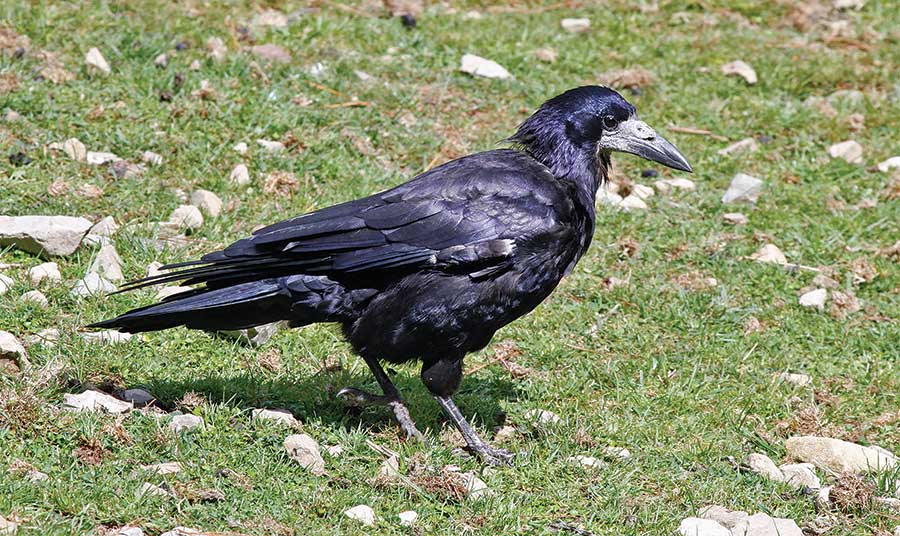Checkmate for Canterbury's rooks
Environment Canterbury media release: 22nd May 2023
Eradication of a pest animal is a rare achievement. But when the pest is intelligent and moves as fast as the rook in an area as large as Canterbury, the task becomes that much harder.
 Rooks are large, glossy, purplish-black birds that are members of the crow family that adversely impact agricultural production and the economy.
Rooks are large, glossy, purplish-black birds that are members of the crow family that adversely impact agricultural production and the economy.
The birds swoop in to take freshly laid seeds out of the ground, ripping up small plants and damaging crops, before moving on to the next farm. Larger than a magpie, they generally weigh about 400 grams and are around 45 centimetres long.
That is why it is cause for celebration that what may be the last rook in the region was spotted and killed in North Canterbury recently.
A sustained biosecurity programme
Biosecurity team leader Matt Smith said that since the 1990s, rooks have been a declared pest under multiple regional programmes. Back in the 90s, Canterbury's rook population was estimated to be in the thousands.
"Through a lot of hard work, they have been reduced in number over time. We thought we had about three left in 2018, and two of those were subsequently found and killed," he said.
"Over the past year there were various sightings of another rook. It was sighted on a property in North Canterbury by the farm manager and we got someone up there to confirm it was in fact a rook. About a week later a worker on the farm managed to sight it and kill it the following day.
"As far as we know, it is the last one in Canterbury. We know that since 2018 there have only been single sightings. And because they are quite social birds and hang out together, that was a good sign.
"An older male bird was the last one we’ve had sightings of and we’re hopeful that was the last one in the region," he said.
Remain alert for any rook sightings
Matt and his team cannot rest on their laurels, though. Rooks are still known to live in the Marlborough and Otago regions.
"Obviously, they don’t respect regional boundaries. It’s important that although we are in the clear for now, there is a risk of re-entry from those areas, so we ask that people remain aware," Matt said.
If you think you may have spotted a rook or any of our other declared pests, we encourage you to get in touch with us by contacting our advisory team (0800 326 636 or biosecurity[at]ecan.govt.nz).
Find out about about declared animal pest species in Waitaha | Canterbury.